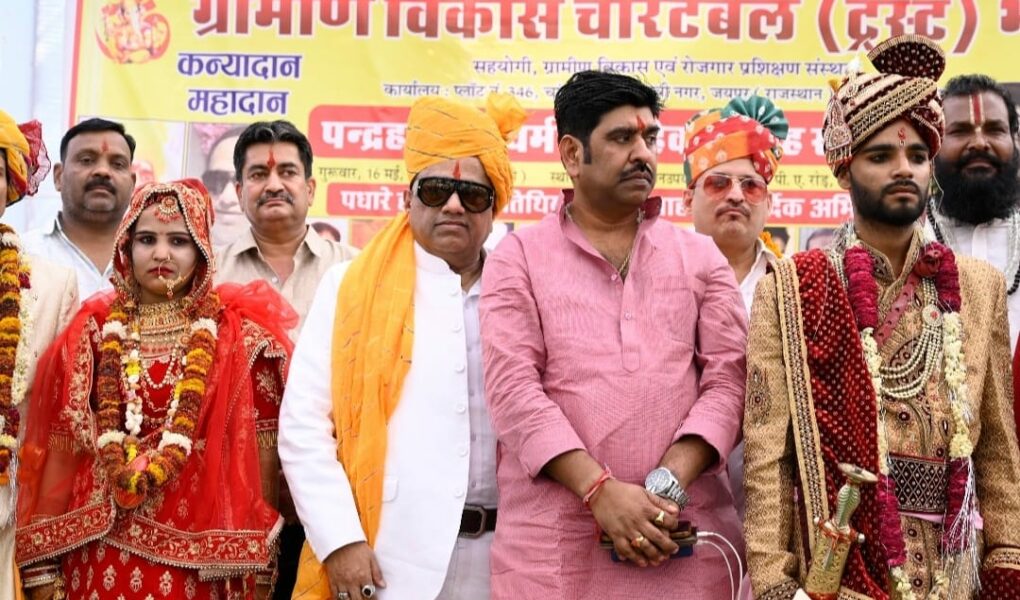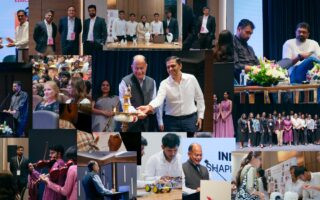Mass marriages have become a significant social event in many parts of India, offering a practical solution for couples from economically disadvantaged backgrounds to tie the knot without the financial burden typically associated with wedding ceremonies. These events are often organized by charitable trusts and NGOs, aiming to promote social equality and support families who struggle to afford the expenses of a traditional marriage.
Such gatherings not only provide a platform for couples to start their marital journey but also foster a sense of community and mutual support among participants and attendees. The concept of mass marriages embodies the spirit of unity and shared joy, as multiple couples exchange vows in a collective celebration, symbolizing the coming together of different families and communities.
In Jaipur, Rajasthan, the Gramin Vikas Charitable Trust recently organized a grand mass marriage ceremony, which saw the participation of numerous couples from financially weaker sections of society. This event, held with great enthusiasm and dedication, aimed to alleviate the burden on families by covering the expenses traditionally incurred during wedding ceremonies.
The highlight of the ceremony was the presence of Hukum Uday Pratap Singh, a distinguished social worker and businessman, who attended as the chief guest. His involvement added a significant touch of honor and grace to the occasion. Hukum Uday Pratap Singh’s dedication to social service is well-known, and his participation in this mass marriage further demonstrated his commitment to community welfare.

As part of the event, he performed the revered ritual of Kanyadan, a traditional practice in Indian weddings where the bride’s guardian formally gives her away to the groom. This act holds immense cultural and emotional significance and is considered a noble gesture. Hukum Uday Pratap Singh expressed his joy and gratitude for being part of such a meaningful ceremony, emphasizing the blissful nature of the Kanyadan ritual.
The mass marriage in Jaipur was organized meticulously to ensure that every couple felt valued and celebrated. The venue was adorned with festive decorations, creating a vibrant and joyous atmosphere. Traditional music and dance performances added to the celebratory mood, making it a memorable day for the couples and their families.
Hukum Uday Pratap Singh praised the efforts of the Gramin Vikas Charitable Trust for their dedication to organizing such an event. He highlighted the importance of supporting financially weaker sections of society and assured the trust that future mass marriages would be organized with even greater grandeur. His words resonated with the attendees, instilling hope and optimism for future events.
The ceremony concluded with blessings and well-wishes for the newlywed couples, who embarked on their marital journey with the collective support of the community. The event was not just a marriage ceremony but a powerful statement of solidarity and support for those in need.
In summary, the mass marriage event in Jaipur, graced by Hukum Uday Pratap Singh, was a testament to the power of community and collective goodwill. It provided a platform for couples to marry with dignity and joy, without the financial strain that often accompanies traditional weddings. The success of this event highlights the positive impact of charitable initiatives in fostering social equality and supporting vulnerable sections of society.




